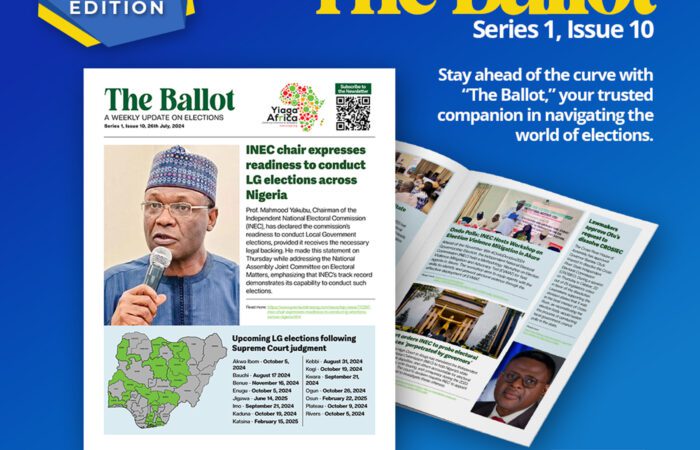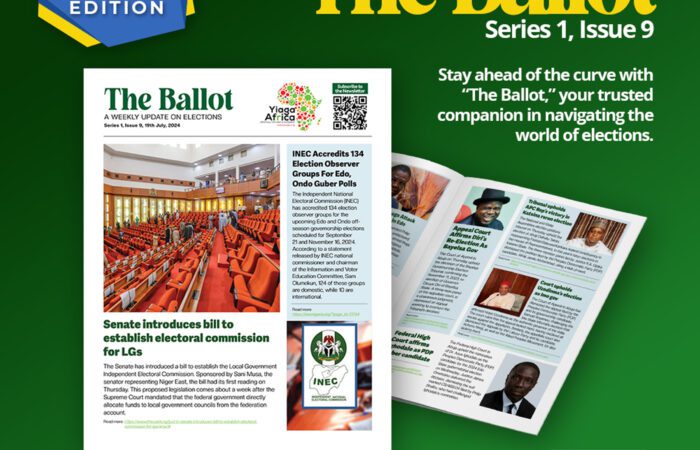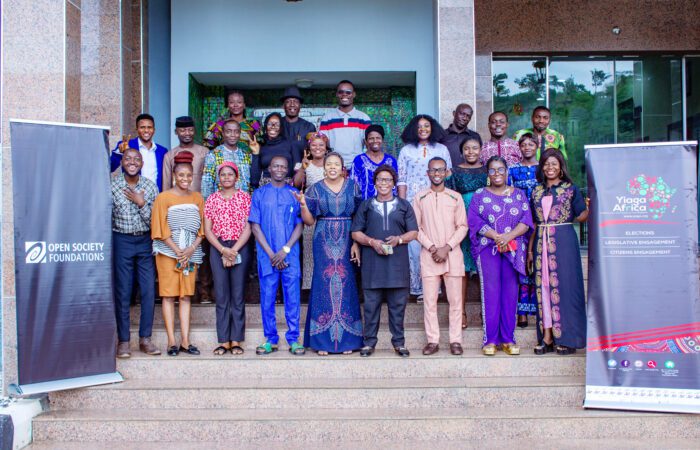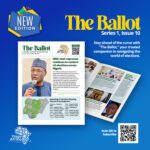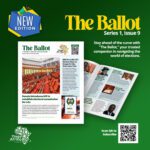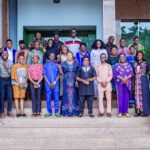Kano, it would be recalled, has been in political turmoil for over one year as former Governor Kwankwaso had been involved in a fight to finish with current Governor Ganduje and the local government election was the opportunity for the current governor to show that he is the only game in town, as such there was additional pressure to falsify the election.
The Kano local government election has been one of the main issues of controversy in the past week. The debate was over video images that circulated showing boys, definitely younger than 18-years, queuing up to vote or thumb printing multiple ballot papers. It led to genuine alarm over the implications of such behaviour for next year’s elections. Charly Boy, the famous entertainer, led a coalition of civil society activists organised under the banner of OurMumuDonDo to the Independent National Electoral Commission (INEC) to complain about the election and demand for action. The social media was full of critical comments attacking INEC for the shambolic election. INEC then engaged in a media frenzy, explaining that it had nothing to do with the election, which they argued was organised by the body constitutionally empowered to do so, the State Independent Electoral Commission (SIEC).
I recall that when the Uwais Electoral Reform Committee was touring Nigeria for the views of citizens on its assignment, one of the key complaints then was that the State Independent Electoral Commissions were not independent of state governors and that they deny citizens the right to elect chairpersons and councillors at the local government level, imposing lists of candidates that had been drawn up by governors on the people. I still recall the anger of so many petitioners who really wanted to vote for good people to run their local governments, the closest level of administration for citizens, but who could not do so as the so-called elections are always non-elections in reality. The Uwais Committee recommended what has been a national consensus – that there should be a constitutional alteration allowing INEC to takeover the conduct of local government elections. That is yet to happen.
If everyone knows that local government elections in the country have never been elections, why was the Kano show so controversial? The first issue was the optics. The videos that I saw showed that most of the people involved appeared to be children; it was as if there are no adults in Kano State. Kano, as is well known, is an issue because of its huge electoral base. Local government elections are supposed to be conducted using the INEC voters’ register but none of the images I saw showed the use of the register. The problem, apparently, is that there is no mechanism compelling the SIEC to stick to the legal provision of using the INEC register, and INEC has no supervisory role in the conduct of the elections.
The general situation in the country, with violence spreading and preparations going on for next year’s elections, has focused attention on the voters’ register. For the first time since the return of democracy in 1999, INEC is adhering to the provisions of the Electoral Act by conducting Continuous Voter Registration (CVR).
Kano, it would be recalled, has been in political turmoil for over one year as former Governor Kwankwaso had been involved in a fight to finish with current Governor Ganduje and the local government election was the opportunity for the current governor to show that he is the only game in town, as such there was additional pressure to falsify the election. People knew that and did not bother to turn up for the election. The opposition to Ganduje had a stake in proving that there was no election and some of the images circulated may have been photoshopped by them to make that point. However, I believe that some of the images are real and confirm the popular belief that elections did not take place in Kano State.
The general situation in the country, with violence spreading and preparations going on for next year’s elections, has focused attention on the voters’ register. For the first time since the return of democracy in 1999, INEC is adhering to the provisions of the Electoral Act by conducting Continuous Voter Registration (CVR). With the introduction of the Biometric Voter Register in 2011, INEC no longer undertakes fresh voters’ registration with every election. In 2015, there was a CVR at the ward level for one week to update the 2011 voters’ register, in preparation for the 2015 General Elections. In April 2017, INEC took the next step by commencing voters’ registration on a continuous, all-year round basis, as provided for by law. Initially, turn out for the registration was low, until religious organisations started urging their members to register. One WhatsApp message is indicative of the mood in the land – “prayer points won’t give you the vote, you need your permanent voters’ card”. This for me is a good indication that Nigerians are beginning to accept that both the voters’ list and our elections have improved integrity and credibility. The optics of the Kano videos raised an alarm because people started posing questions.
One fallout of the proposed new schedule is that organising three elections, instead of the customary two, would be a huge financial burden on national resources in a period when the country is just emerging from economic recession. There would be enormous logistics and cost implications for INEC, in terms of the mobilisation and demobilisation…
According to INEC, so far, four million Nigerians have been registered between April and December 2017. As the pressure mounts on citizens to get on the register, my fear is that people who are already registered would go out to register again. Continuous registration is uniquely for people who have turned 18, and not for those already on the register. Double registration is a crime. People who have changed locations or lost their cards are allowed to apply for new cards, but they must not pretend they are not on the register. The response to the Kano images should be to protect the integrity and credibility of the voters’ roll. That should be our focus.
On Wednesday, the National Assembly concluded the process of rescheduling the elections. The changes they have introduced to the sequence of the elections are disturbing because it has implications for the independence of INEC. According to Paragraph 15 (1) of the Third Schedule of the 1999 Constitution, INEC has the power “to organise, undertake and supervise all elections to the offices of the President and Vice President, the Governor and Deputy Governor of a State, and to the membership of the Senate, the House of Representatives, and the House of Assembly of each State of the Federation.” The Constitution is clear that election to the offices listed above “shall be held on a date to be appointed by the Independent National Electoral Commission.” Based on this provision, State and National Assembly elections were held before governorship and presidential elections previously, and the dates and sequence of the 2019 elections have already been determined by INEC. It is hard to see the purpose of isolating the National Assembly elections and putting these ahead of the governorship and presidential election. It would have been more logical to group federal elections on one day and state level elections on another, or to group legislative elections on one day and election into executive positions on another. It appears that the only purpose might be that National Assembly members think they would enhance their personal chances in the elections if they go first. They forget that the evidence from previous elections is that their governors would deny most of them nomination and usually only 20 percent of them usually return to the chambers. Their thinking then might be that if they are thrown out of their parties and join new ones, the rescheduling might enhance their chances. This, to say the least is self-serving.
One fallout of the proposed new schedule is that organising three elections, instead of the customary two, would be a huge financial burden on national resources in a period when the country is just emerging from economic recession. There would be enormous logistics and cost implications for INEC, in terms of the mobilisation and demobilisation of upwards of over one million regular and Ad-hoc INEC staff, transportation, feeding and security personnel. The capacity and resources of the security agencies will be severely tasked in providing election security for three elections over a six-week period, given the dire national security situation in the country. The same would be true for local and international election observers. Laws are serious instruments and should not be made for selfish interest without consideration for the national interest.
Source: Premium Times

